-
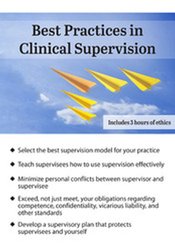
George Haarman – Best Practices in Clinical Supervision: A Blueprint for Providing Effective and Ethical Clinical Supervision
- Faculty:
- George Haarman
- Duration:
- 5 Hours 50 Minutes
- Format:
- Audio and Video
- Copyright:
- Jan 25, 2018
Description
Are you considering joining the ranks of those who are approved to provide this invaluable oversight of fellow professionals? Are you already a clinical supervisor and need to formalize and enhance your knowledge and skills? This recording presents a blueprint, based on established best practices, for providing effective and ethical clinical supervision.
Explore clinical supervision through the lens of critical legal, ethical, and risk management issues. Gain clarity on how to define the goals of supervision, as well as the responsibilities of both supervisor and supervisee. Analyze the “How Do I?” of clinical supervision, with details on individual vs. group supervision, case consultation, interactive live supervision, audio and video sessions, and other methods and techniques. Determine how to meet, and then exceed, your obligations regarding competence, confidentiality, vicarious liability, and other standards.
Handouts
| Manual – Best Practices in Clinical Supervision (1.48 MB) | 76 Pages | Available after Purchase |
Outline
ESTABLISH ROLES AND RESPONSIBILITIES
- Administrative vs. clinical supervision
- Role of the clinical supervisor
- Teaching supervisees how to use supervision effectively
- Assisting supervisees in taking an active role
CHOOSE THE MOST EFFECTIVE SUPERVISION MODEL FOR YOUR SETTING
- Developmental models
- Psychotherapy based models
- Integrative models
- Parallel process model
- The supervisee as “patient”
MASTER EFFECTIVE METHODS AND TECHNIQUES OF SUPERVISION
- Multicultural supervision
- Individual vs. group supervision
- Co-therapy vs. co-responsibility
- Case consultation
- Written activities and case notes
- Live observation
- Interactive live supervision
- Audio and video recording of sessions
- Experiential methods
AVOID AND RESOLVE PROBLEMS THAT ARISE DURING SUPERVISION
- Ethical
- Supervisor competence
- Informed consent
- Boundary issues
- Dual relationships
- Supervisor/supervisee obligations
- Incompetent or impaired supervisees
- Sexual attraction
- Confidentiality
- Documentation
- Evaluation and feedback
- Legal
- Vicarious liability
- Standard-of-care
- Negligence
- Confidentiality vs. privilege
- Duty to warn/report
- Due process
- Risk management
- Knowledge of ethical codes and mental health law
- Supervision contracts
- Boundaries of competence
- Consultation supervision
- Documentation
- Ongoing training in supervision
- Liability insurance coverage
- Insuring confidentiality
- Supervisory malpractice
PROPERLY EVALUATE SUPERVISEES AND SUPERVISION
- Formative vs. summative evaluations
- Criteria for evaluation
- Standardization of methods
- Self-evaluation
- Objective evaluation tools
- Supervisory evaluation
- 360-degree feedback
- Develop a supervisory plan
CASE STUDIES
Faculty
George Haarman, PsyD, LMFT Related seminars and products: 3
George B. Haarman, PsyD, LMFT, is a Licensed Clinical Psychologist and a Licensed Marriage and Family Therapist with over 40 years of experience working in a variety of settings, including private practice, youth detention centers, juvenile group homes, child protective services, and juvenile probation. Dr. Haarman completed basic and advanced supervisor training required by the Kentucky Board of Psychology Examiners and maintains approval by the Board to act as a supervisor. In his private practice, he has provided clinical supervision to clinical and counseling practicum students as well as consultation about clinical supervision to psychologists for over 25 years.
Dr. Haarman is a national speaker on clinical supervision, depression, school refusal, ADHD, emotional disorders in children and adults, and the DSM-5®. He is the author of three books: Clinical Supervision: Legal, Ethical, and Risk Management Issues, School Refusal: Children Who Can’t or Won’t Go to School, and Mastering DSM-5®. Dr. Haarman received his doctorate in clinical psychology from Spalding University in 1989. He has been an instructor at Jefferson Community College, Bellarmine University, and Spalding University.
Speaker Disclosures:
Financial: George Haarman is in private practice. He receives a speaking honorarium from PESI, Inc.
Non-financial: George Haarman is a member of the American Psychological Association; and the Kentucky Psychological Association.
Instant Access Available
Product Content

Get Instant Access George Haarman – Best Practices in Clinical Supervision: A Blueprint for Providing Effective and Ethical Clinical Supervision at Offimc.click Now!
Sale Page: https://catalog.pesi.com//item/best-practices-clinical-supervision-34299
Delivery Information
- Upon ordering the product, a delivery email with download instructions will be sent immediately to you so that you may download your files. If you log in (or create an account) prior to purchase you will also be able to access your downloads from your account dashboard.
- It is a digital download, so please download the order items and save them to your hard drive. In case the link is broken for any reason, please contact us and we will resend the new download link to you.
- If you don't receive the download link, please don’t worry about that. We will update and notify you as soon as possible from 8:00 AM – 8:00 PM (UTC+8).
- Please Contact Us if there are any further questions or concerns you may have. We are always happy to assist!



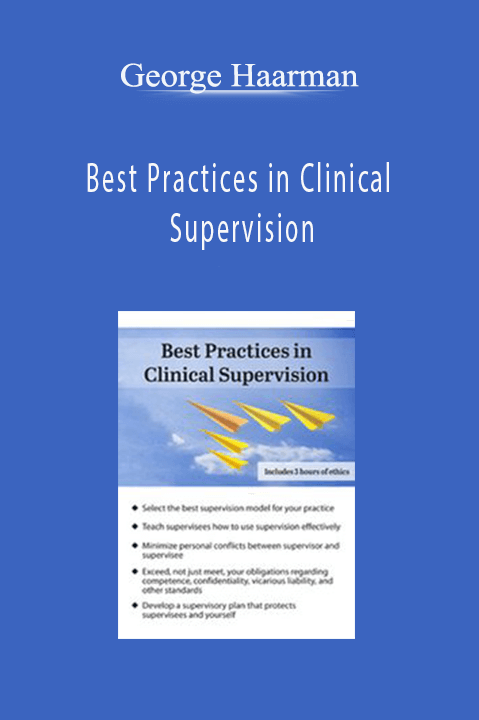




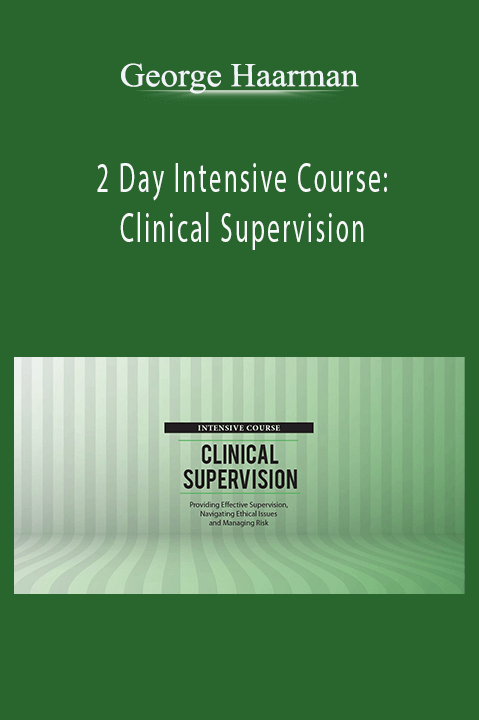
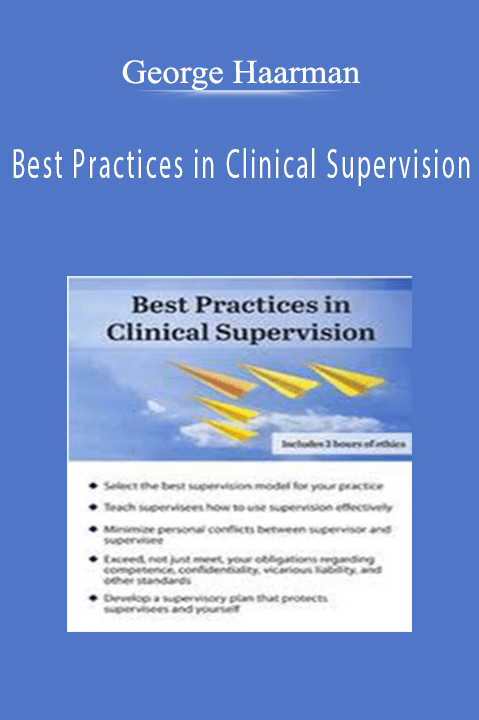

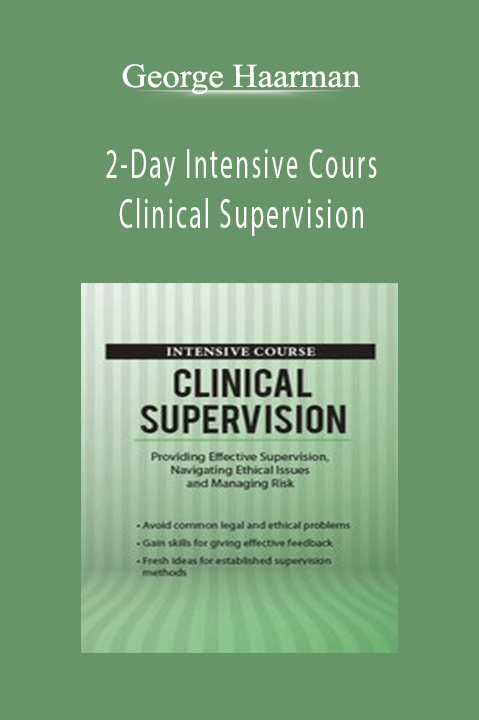

6 reviews for Best Practices in Clinical Supervision: A Blueprint for Providing Effective and Ethical Clinical Supervision – George Haarman
There are no reviews yet.